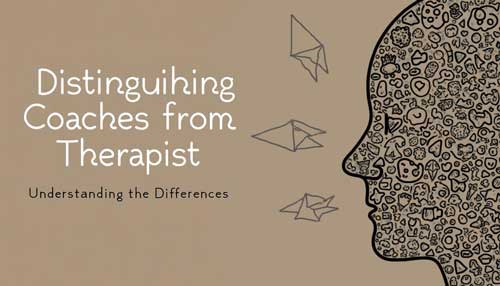In the realm of personal development and mental health support, the terms “coach” and “therapist” are often used interchangeably, leading to confusion about their respective roles. However, it’s crucial to understand that life coaches and therapists serve different purposes and have unique approaches to helping individuals.
Coaches: Focusing on the Future
My primarily concentrate on personal growth, goal-setting, and decision-making. I help my clients envision their future, identify their aspirations, and create actionable plans to achieve their goals. Coaching sessions often involve motivation, accountability, and developing skills that empower individuals to unlock their potential. I typically work with clients who function well but wish to enhance their lives, whether in career, relationships, or overall well-being.
Therapists: Healing the Past
On the other hand, therapists are trained professionals who address mental health issues, such as anxiety, depression, trauma, and other emotional challenges. Their work often requires a deep understanding of psychological theories and therapeutic techniques, which may involve exploring past experiences to help clients process emotions and achieve healing. Therapists work with clients who may benefit from mental health treatment, and they are equipped to handle crises and provide support for more serious psychological concerns.
Key Differences
While both coaches, like myself, and therapists aim to support their clients, the key differences lie in their training, focus, and the approaches they utilize:
- Training: Therapists possess advanced degrees in psychology or social work and are licensed to provide mental health services. Coaches may not have formal training in psychology and often focus on motivation and personal development instead.
- Focus: I am forward-looking and help clients with goals and personal aspirations, while therapists often address emotional and psychological healing from the past.
- Approach: I utilize strategies like accountability and empowerment techniques, whereas therapists employ therapeutic modalities to help clients cope with and resolve emotional difficulties.
Understanding the distinctions between coaches and therapists can help individuals choose the right type of support for their needs. I may be the right fit if you’re seeking personal growth and motivation. However, if you’re dealing with mental health challenges or emotional struggles, consulting a therapist is advisable. Understanding these roles can lead to better outcomes on your journey to personal development and overall wellness.
